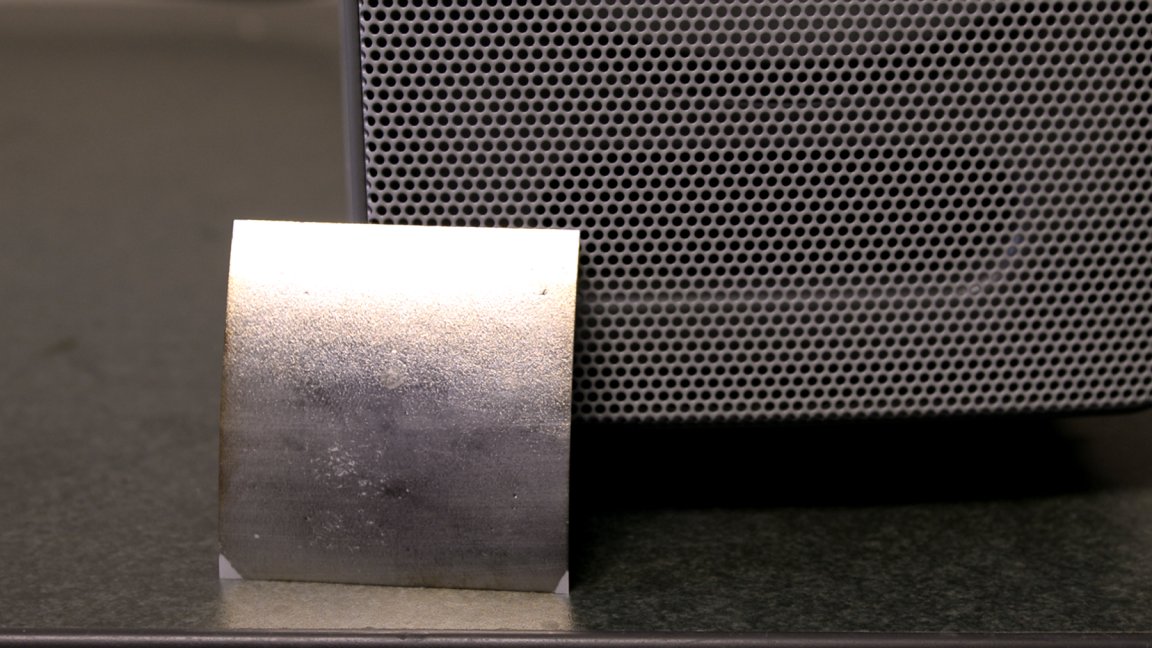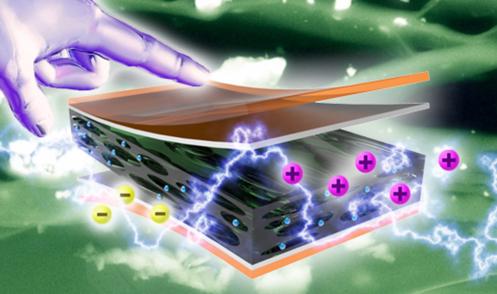
Breakthrough Technology
Speakers can be bulky, especially the more powerful ones. So, what if it were possible to enjoy your favorite sounds, say in an event or a party, without the hassle of setting up such massive devices? It could be, with a new device developed by scientists from the Michigan State University (MSU), which they’re calling a ferroelectret nanogenerator, or FENG for short.
This flexible and paper-thin device wasn’t originally meant to be a speaker. Back in its inception in late 2016, FENG was developed to be “the first transducer that is ultra-thin, flexible, scalable and bidirectional, meaning it can convert mechanical energy to electrical energy and electrical energy to mechanical energy,” said Nelson Sepulveda of MSU. It was able to power a keyboard, LED lights, and an LCD touch-screen.
Now, in a study published in the journal Nature Communications, the researchers showed how FENG could also work as a microphone and as a loudspeaker.

A Flag With Sounds
Eager to determine just how well FENG could convert sound to electrical energy and vice-versa, Sepulveda’s team conducted two tests. For its loudspeaker effect, they embedded FENG into an MSU Spartan flag. They patched it to an amplifier connected to an iPad to play music. “The flag itself became the loudspeaker,” Sepulveda said. “So we could use it in the future by taking traditional speakers, which are big, bulky and use a lot of power, and replacing them with this very flexible, thin, small device.” As a microphone, the FENG fabric can be turned into a security patch that utilizes voice recognition to access a computer.
The potential uses for FENG aren’t limited to security patches and loudspeakers, or to voice-activated newspapers. The technology could also be used to develop noise-cancelling sheets and voice-protected health-monitoring wearables said Wei Li, lead author of the study. “Many people are focusing on the sight and touch aspects of flexible electronics,” he explained, “but we’re also focusing on the speaking and listening aspects of the technology.”
Indeed, FENG could be the foundation for next-generation audio devices and so much more. It could eventually help to create foldable loudspeakers, voice-activated security patches for computers, and even talking newspapers. It could also help to make smartphones thinner than ever, by incorporating the speakers and mic into the screen itself.